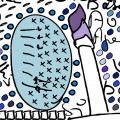Skill development

The future of work: seven mutations to anticipate
The Covid-19 crisis will probably engender deep and irreversible changes in the organization of companies. How can you accompany this transformation of the world of work to draw a desirable future?

Taming procrastination
Tending to postpone until the next day what we could be doing that same day is a natural mechanism to manage our emotions. Rather than fighting this temptation, how can we channel it, or even take advantage of it?

Successfully onboarding new employees
Very few companies have a really satisfying onboarding process. Yet, the latter largely determines the commitment and loyalty of the newcomers. How can you welcome new staff members really well?

Sharpen your attention focus
Our work environments do not lend themselves easily to concentration. At the time and age of collaborative spaces and new technologies, how can you stay in control of your attention focus and maintain your personal productivity?

Get back into the habit of asking questions
Business leaders are rarely represented as people who question themselves. Yet, managers should be equally able to question as they are to affirm; but it seems this capability has somewhat been lost. How to get it back?

Changing habits while maintaining your energy
Relying on habits enables us to save our energy. Yet, it happens that these habits are no longer suited to a situation or needs that have changed. How can we evolve them?

Contradictions, a source of innovation?
Great leaders are able to surmount apparent contradictions to devise original solutions that bridge the two initial options. How can you draw inspiration from their example to turn dilemmas into a source of creativity?

Neuroscience and change
Our brain likes habits. To the extent of being opposed to any change? In reality, neuroscience demonstrates that we can adapt our practices in change management to the functioning of our brain.

